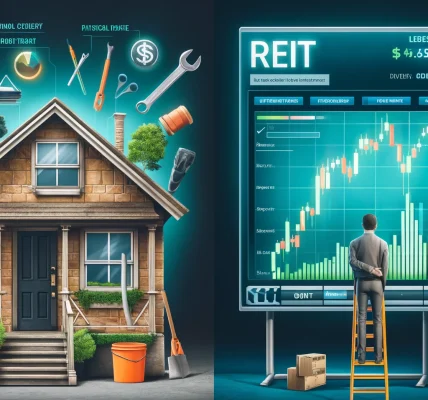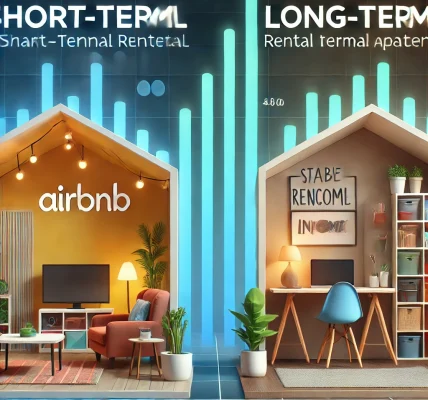Introduction
Real estate has long been one of the most stable and lucrative investment avenues. However, traditional real estate investing comes with high capital requirements, legal complexities, and liquidity challenges. Enter real estate tokenization—a game-changing innovation that leverages blockchain technology to democratize property investment.
With real estate tokenization, investors can purchase fractional ownership of properties through digital tokens, making property investment more accessible, transparent, and liquid. In this guide, we will explore how real estate tokenization works, its benefits and risks, and how you can get started in this emerging sector.
1. What is Real Estate Tokenization?
Understanding Tokenization
Tokenization refers to the process of converting real-world assets—such as real estate—into digital tokens on a blockchain. Each token represents a share in the property, allowing multiple investors to own fractional portions of real estate assets. These tokens can be bought, sold, or traded on blockchain-based platforms, bringing liquidity and accessibility to property investment.
Types of Real Estate Tokenization
- Equity Tokenization: Investors own a share in the real estate asset and benefit from rental income and appreciation.
- Debt Tokenization: Investors purchase tokenized debt backed by real estate, earning interest as property owners pay back loans.
- Revenue-Sharing Tokens: Investors receive a percentage of rental income or profits generated by the property.
2. How Does Real Estate Tokenization Work?
Tokenizing a real estate asset involves several steps:
A. Property Selection and Valuation
- Identifying a suitable property for tokenization (residential, commercial, or mixed-use).
- Conducting a property valuation to determine its market price.
B. Legal Structuring
- Establishing a legal entity to hold ownership of the property.
- Ensuring compliance with regulations and securities laws to protect investors.
C. Token Issuance and Blockchain Integration
- Creating digital tokens that represent shares of the property.
- Registering these tokens on a secure blockchain platform (e.g., Ethereum, Solana, or Tezos).
D. Investor Participation and Trading
- Investors purchase tokens via a tokenization platform.
- Tokens can be traded or transferred between investors on secondary markets.
3. Benefits of Real Estate Tokenization
A. Increased Accessibility
- Tokenization lowers entry barriers, allowing retail investors to invest with smaller amounts.
- Investors can buy fractional ownership rather than purchasing entire properties.
B. Improved Liquidity
- Traditional real estate investments are illiquid, requiring long sales processes.
- Tokenized assets can be traded on blockchain marketplaces, providing faster exit options.
C. Transparency and Security
- Blockchain technology ensures immutable property records, reducing fraud risks.
- Smart contracts automate transactions and enforce agreements without intermediaries.
D. Reduced Transaction Costs
- Eliminates intermediaries such as brokers and legal advisors, lowering transaction fees.
- Streamlines property management through decentralized ownership.
E. Global Investment Opportunities
- Investors can purchase tokenized real estate across borders without complex legal hurdles.
- Enables diversification in international real estate markets.
4. Challenges and Risks of Real Estate Tokenization
A. Regulatory and Legal Uncertainty
- Different countries have varying regulations regarding tokenized securities.
- Investors should ensure compliance with local laws before participating.
B. Market Volatility
- While real estate is generally stable, tokenized assets might be subject to crypto-market fluctuations.
- Illiquid or unregulated platforms may pose investment risks.
C. Security and Fraud Risks
- Blockchain technology is secure, but hacking risks exist for poorly secured platforms.
- Due diligence is required to avoid scams and fraudulent token issuances.
D. Lack of Standardization
- The industry lacks universal standards, leading to challenges in platform compatibility and asset evaluation.
- Investors should carefully research tokenization platforms before investing.
5. How to Get Started with Real Estate Tokenization
A. Research and Choose a Tokenization Platform
- Look for reputable platforms that comply with legal and security regulations (e.g., RealT, Harbor, Securitize).
- Ensure the platform offers transparent ownership and property management details.
B. Determine Your Investment Strategy
- Decide whether you want to invest in tokenized equity, debt, or revenue-sharing properties.
- Consider diversifying across multiple tokenized properties to reduce risk.
C. Conduct Due Diligence
- Verify the legitimacy of the property and its valuation.
- Review the smart contract terms and conditions before purchasing tokens.
D. Purchase Tokens and Monitor Performance
- Buy tokens through a tokenization platform using fiat or cryptocurrencies.
- Track rental income, appreciation, and market trends to make informed decisions.
6. The Future of Real Estate Tokenization
The tokenization of real estate is expected to grow significantly as blockchain technology matures. Some future trends include:
A. Increased Institutional Adoption
- More institutional investors and real estate firms will integrate tokenization into their investment models.
- Governments may create regulations to support and standardize tokenized real estate.
B. Enhanced Liquidity and Secondary Markets
- Development of regulated secondary markets will make trading real estate tokens easier.
- Investors will benefit from faster exits and improved liquidity.
C. Smart Contracts for Property Management
- Smart contracts will automate rental payments, property maintenance, and legal processes.
- Reducing human intervention will lower costs and increase efficiency.
D. Expansion into New Asset Classes
- Beyond residential and commercial real estate, tokenization may expand into luxury real estate, farmland, and even infrastructure projects.
Conclusion
Real estate tokenization represents a revolutionary shift in property investment, offering accessibility, liquidity, and transparency. While challenges exist, the benefits of fractional ownership, reduced transaction costs, and global investment potential make it an exciting opportunity for investors.
Key Takeaways:
- Tokenization democratizes real estate investing by allowing fractional ownership.
- Blockchain ensures secure, transparent, and efficient transactions.
- Investors should conduct thorough due diligence before participating.
- Regulatory developments will shape the future of real estate tokenization.




